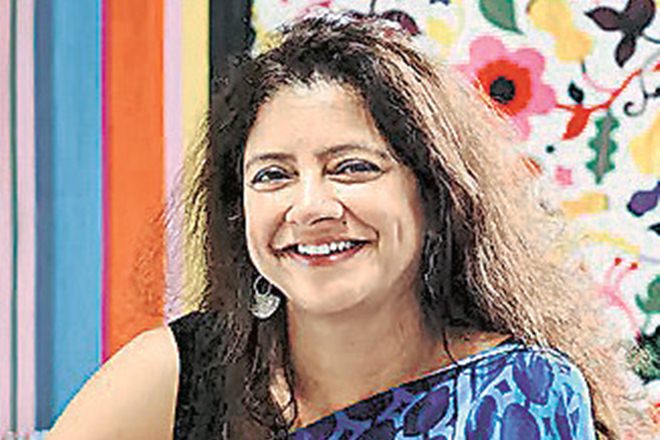Swedish furniture retailer IKEA is looking at multi-channel approach for expansion in the country. The company is also planning to increase sourcing of raw materials from the country to over 50% from the current level of 20%, Preet Dhupar, CFO, IKEA India, tells BV Mahalakshmi. Besides, the company is mulling to foray into ‘rent-a furniture’ concept in India which is growing well in the global markets. Edited excerpts:
How is the Indian market for IKEA both in terms of opportunities and challenges?
The world’s retail landscape is changing at a scale and pace not seen before, driven by increasing urbanisation, changing customer behaviours and digitalisation. More and more people are shopping online. Consumers are getting busier and seeking faster gratification for most of their purchasing journeys. IKEA is transforming globally to become more accessible, affordable and sustainable. Our ambition is to create a more digitally-enabled IKEA to be able to reach many customers where they are and when they want to shop. India’s dynamic and vibrant ecosystem enables IKEA to make it among the first markets where we are bringing alive this transformation. We are looking at integration of both online and offline platforms to offer an omni-channel presence to our customers. The big IKEA store size will range from 400,000 sq ft – 500,000 sq ft and the smaller formats will range from 50,000 sq ft – 150,000 sq ft, depending on locations.
In its first year of India operations, over four million customers have visited IKEA Hyderabad store and IKEA India website had about 10 million visitors . We will open Mumbai with a one-market approach with the Navi Mumbai store, three small stores and e-commerce. Customers will be soon be able to shop online in Mumbai, followed by Hyderabad and Pune and then other cities. Land sites have been acquired in Bengaluru and Gurugram and we continue to look for suitable sites in other cities. The ambition is to be present in as many Indian cities as possible through different channels.
Within IKEA, Mumbai is the first market where we will start with e-commerce first, even before the physical stores come up. It is a very exciting phase and we are really looking forward to meeting many customers sooner once our e-commerce presence goes live. Our expectations are high, and we will learn and evolve as we go along.
What are the lessons learnt from Hyderabad business in terms of pricing vis-à-vis other markets as you plan to service more people?
We continue to learn from customers who come to our flagship store in Hyderabad about life at home and what the customers’ needs. We are learning to be more relevant every day. Our affordable products work well for value for money concept allowing us to work with affordability. While we always recognised the need for services in India, we are surprised at the openness to Do-It Yourself (DIY) concept. Customers want to shop at their time and place, and hence, we are also focusing on being accessible and on our online strategy.
How is the digital concept growing as opposed to conventional retail format?
IKEA is transforming globally to become more affordable, convenient, accessible and sustainable. IKEA is looking at integrating both online and offline platforms and offer a multi-channel shopping experience to its customers in the long run. Our ambition is to create a more digitally-enabled IKEA to be able to reach many customers where they are and when they want to shop. Our goal is to reach 100 million people in the coming three years. This will be through a combination of big IKEAstores, smaller city-centre stores, pick-up points, digital touchpoints like the shop-able app and the e-commerce platform as a selling channel.
Is there a plan for rent-a-furniture for the Indian market? How is the concept working in other countries?
Circularity is one of the pillars of our sustainability strategy and we are developing our strategy towards the renting market. This gives choice to customer as wide as possible to get access to our range. We also aim to bring this concept to India as well.
It’s been a year now after opening your first store. In terms of revenues, how do you see growth and future investments in India?
The visitation and sales in Hyderabad have been as per our expectations. India is a long-term market for us. We have already acquired land parcels in Gurugram, Bengaluru and Mumbai, and a distribution centre in Pune and we will be launching online very soon. We will continue to grow and invest in our key markets in India. Investments will be in both large and small stores as well as the supply chain set-up. We are committed to the investment numbers we have stated in the beginning of our journey when we started in India with Rs 10,500 crore. IKEA has committed to invest €1.5 billion so far. India is a prioritised market and we have ambitious expansion plans. Three Indian cities are in the fast-speed expansion markets which include Mumbai, Bengaluru and Delhi/National Capital Region.


